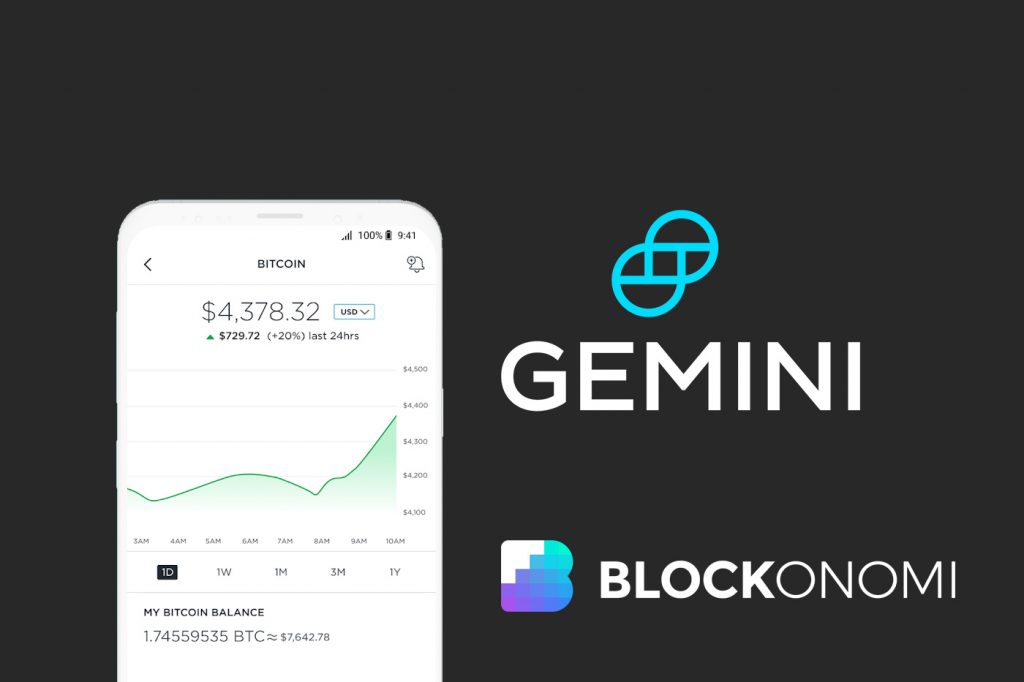Binance has been hit by regulators across the world, and Gemini may be aiming to use compliance as the path to follow to beat its competitors in the near future.
Cameron Winklevoss, who has made a big part of his fortune in the crypto market, stated that Gemini is, “trying to be the fastest tortoise in the race. The long game pays off over time.”
Gemini’s long game involves bending to the will of regulators by adhering to their demands.
With cryptocurrency use on the rise, the exchange of Fiat currency to crypto continues to be the major way for governments to control access to the technology.
For example, regulators in the United Kingdom told Binance that it was not authorized to do business in the country, which resulted in a blockade by financial institutions.
The United States Department of Justice, Internal Revenue Service, and Commodity Futures Trading Commission have followed the example by starting inquiries on Binance, Coinbase, and Kraken business models.
Gemini is Looking for a PayDay
Gemini has avoided such trouble by cooperating with financial regulators to create a legal framework.
Unfortunately, regulated access to crypto will inevitably result in bureaucracy getting on the way with Know-Your-Customer, financial reporting to the government, and many other processes that go against the philosophy of decentralization.
While Binance has also made efforts to adhere to regulations, it has failed to do so in the same way Gemini has. However, Binance continues to dominate the crypto market in terms of trade volumes.
Exchanges like Gemini and Coinbase (and Binance, while it has failed to do so) have been prioritizing their good stand with regulators in an attempt to increase their reach. However, their approach might backfire.
Centralized Exchanges Are Forgetting the Ideals of Crypto
The conflict of interest reflected by centralized cryptocurrency exchanges over the years shows a dark reality that has been known by humanity for millennia: corporate interests prevail over principles.
It is no secret that centralized exchanges have been losing popularity among crypto veterans in recent years.
Decentralized exchanges like Uniswap, Sushiwap, and Mdex have seen a great influx of users over the past years, especially when Centralized Exchanges fail to serve their purpose.
The reason is simple: Crypto was supposed to fight decentralization instead of facilitating it.
Centralized Exchanges were largely seen as a “necessary evil”, a sort of gatekeeper to the world of crypto which you just had to deal with. Decentralized Finance (DeFi) is changing that.
DeFi might still be young but its potential to revolutionize the crypto industry is huge. By removing intermediaries it is also removing the chance of corporate interests getting in the middle of the financial revolution. When it comes to DeFi, code truly is law.
CBDCs are Racing to Beat Crypto’s Mass Adoption
While governments could previously ignore crypto due to it being relatively unknown, its rise in popularity has forced them to take action to protect their interests.
Halting crypto has become an important step toward the development of their own digital currencies as countries race to launch the first successful Central Bank Digital Currency (CBDC).
This has resulted in regulators around the world have started cracking down on crypto exchanges in an attempt to restrict free access to cryptocurrency. After all, easily accessible financial services that can’t be regulated by a government are not good news for them.
The technology and approach cryptocurrencies have followed for years are not guiding the development of CBDCs. There is just a little change, they are under the control of central banks.
With humans being creatures of habit, the mass adoption of a cryptocurrency like Bitcoin could result in them refusing to transition to a CBDC in the future. After all, why change a universally available currency for one that is more limited?
The post Gemini’s Plan to Overtake Binance: Do What Regulators Tell Them appeared first on Blockonomi.





















